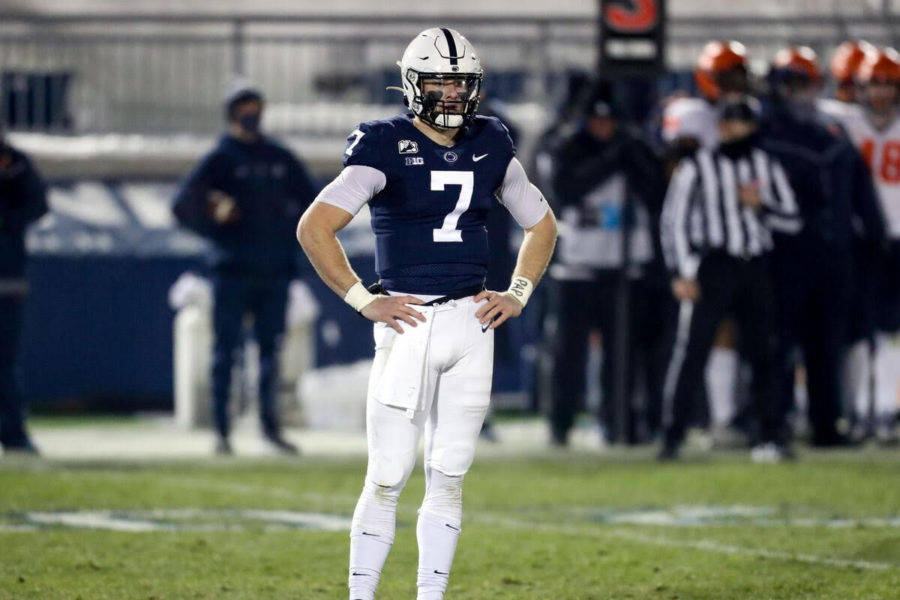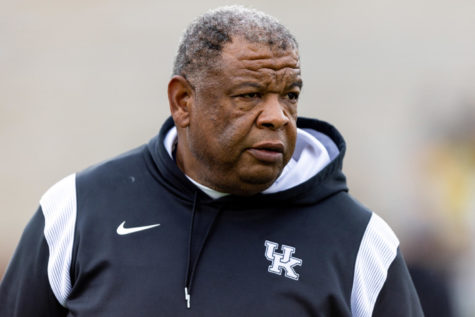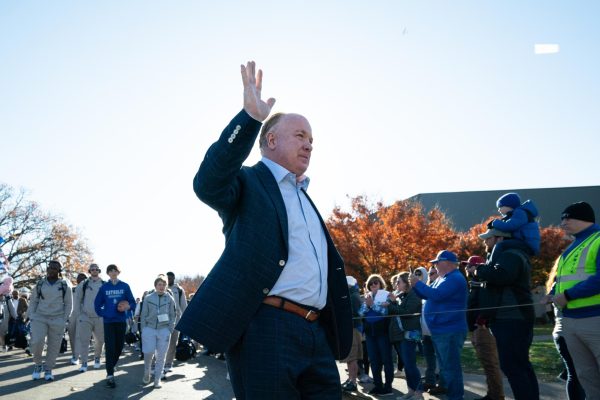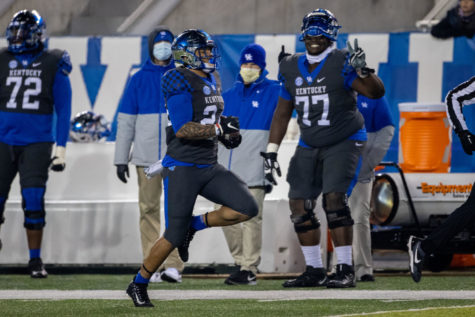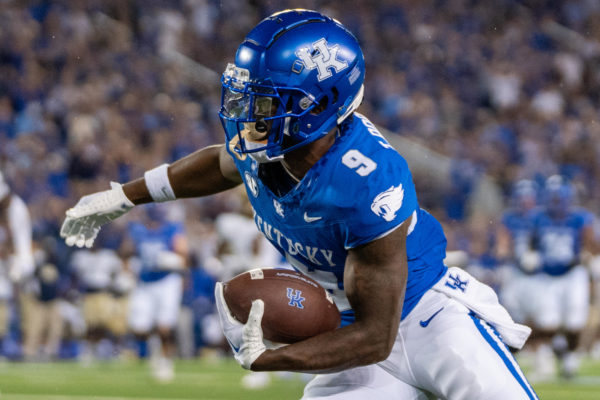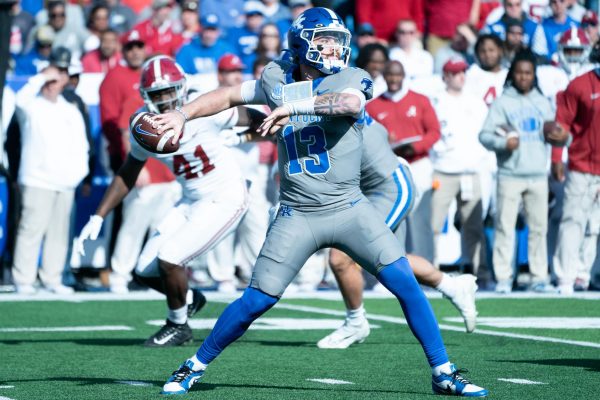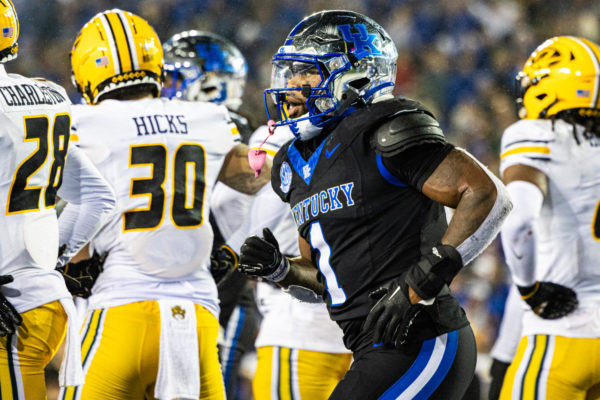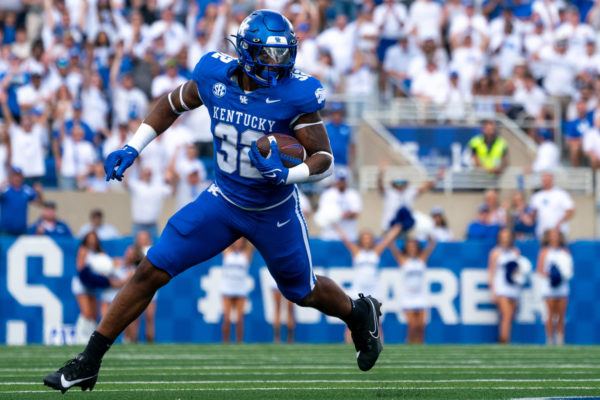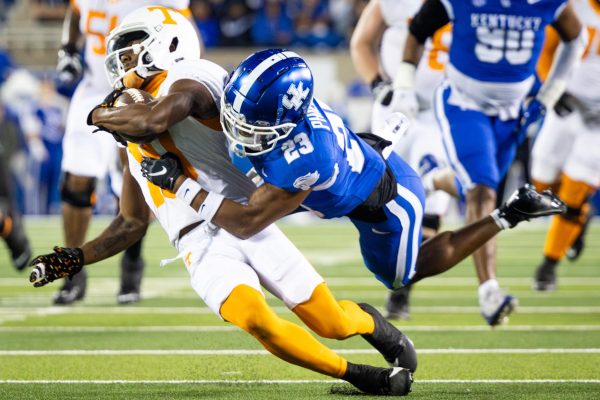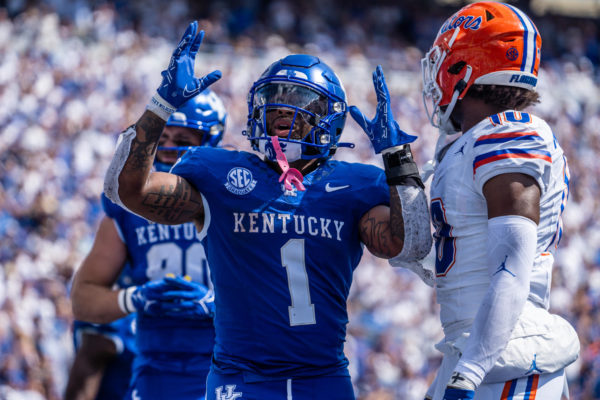Will Levis’ Finance degree has prepared him for NIL era
July 27, 2021
Some student-athletes are struggling with marketing themselves in the NIL era, but in the case of Will Levis, his background in finance and support group around him has given him a grasp on what it means to be a college athlete in 2021.
Levis graduated from Penn State in three years with a 3.95 GPA and a degree in Finance; prior to college, he’d always been a great student. At Xavier High School in Middletown, CT, he graduated with a GPA above 4.0 overall.
“After my first year when I was admitted into the business school (Penn State), I realized that I was on track to [graduate] pretty handily in three years,” Levis said. “… As long as I’m on scholarship, I’m going to school for free, so I’m going to get as much out of it as I can.”
Taking classes every summer as well as stacking up credits each Spring and Fall with an extra class or two, Levis was on track to finish his undergraduate degree in six semesters. “I chose a path, stuck to it and it ended up working,” he said.
Academics has always been important to Levis, whose mother graduated from Yale and father attended Denison University.
“I definitely grew up in a very competitive environment. I think [academics] was more of my nature than the people around me pushing me,” Levis said. “I was very hard-headed growing up, I wanted to be the best at whatever I could do, whether it was Mad Minutes in fourth grade, or finishing a test faster than anyone else.”
Now that he’s obtained his degree from Penn State, he’s enrolled in a one year Master’s program in Finance at UK. Now that he’s in a graduate program, NCAA rules state that he only has to take nine credit hours per semester compared to 12 that is required for undergraduate student-athletes to allow him to focus more on football while in Lexington.
Lowering the number of credit hours he takes, that one year program is expected to take a year and a half, or three semesters in Levis’ case.
“Ultimately, I will have to pursue something else afterwards, assuming that this isn’t my last year,” Levis said. “Once that time comes, it’s going to be interesting to see what I end up doing.”
Levis’ schooling focuses on, of course, finance, which is perfect for someone like him who is a quarterback at a Division 1 SEC school where Name, Image and Likeness (NIL) laws have come into effect in the last several weeks.
“It’s intimidating, I’m not going to lie,” Levis said on NIL. “It’s uncharted waters, it’s something that I feel like this first year of it will be a lot of ‘hush and go’, trial and error.”
Levis spoke about how much of a spur of the moment the whole situation was where Kentucky passed their law just a couple days before student-athletes were allowed to profit off their own name. It caught the whole athletics program off guard, no one knew what the first steps were.
“For a lot of us, it was just like ‘we don’t know how to approach this’,” he said. “We had one little meeting with Kentucky the day before it all happened basically with some guidelines, some great information about what we can and can’t do, but at the same time, we didn’t have any guidance in terms of how to maximize our potential.”
The advice many athletes have received so far is that they should say yes to any and every offer being thrown at them.
“We have to realize what effect that has on your brand and image,” he said. “You don’t want to just take anything that comes at you, because there might be a bigger thing later, so you don’t want to muddy the waters that way.”
“It makes my head spin, it still does. I’ve taken some time to settle down and make a plan.”
Levis has never been the type of person to broadcast his life on social media, but in this day and age, it’s mandatory to grow his brand.
“There is now a direct correlation between your followers and your bank account as a college athlete from now, until the end of time,” Levis said. “This is going to get more and more complex as it goes.”
He’s still trying to figure it all out now, as most student-athletes are. Trying to find out what exactly their brand is and trying to find companies that align with their brand and beliefs for both parties to benefit off of.
“As things go on, hopefully there are frameworks put in, either by companies coming in, making partnerships with schools, helping kids figure out what they can do at their level,” he said.
Every athlete has a different level. The starting quarterback will have more options than the backup punter; that’s just how it is. A lot of student-athletes are considering what exactly they’re worth now that they can profit off their own likeness.
He said people have reached out to him about how much for him to post something on his social media, “I don’t know,” he responded. “What is a post on my Instagram worth to me? What is a story worth? What is a shoutout for a company or anything else worth to me?”
That’s the first step for student-athletes in the NIL era. And then to have people around that can help handle their finances once they’ve made a decent living off their name.
Levis revealed that he’s signed with a marketing agency that will help him put his brand out there without any strings attached. The deal offers flexibility that allows his brand to be attached to the agency, while also benefiting the student by giving them a platform to publicly display their brand themselves.
“You don’t want to be paying someone for something that you can do on your own,” he said. “You don’t want someone handling your money if you know how to [market yourself] on your own.”
He doesn’t want to be one of these athletes that loses all assets in three or four years, which is why he’s starting early. It all comes down to creating a plan and sticking to it, he reiterated.
“There are a lot of question marks. It’s exciting, but at the same time, it’s also difficult,” Levis said. “There’s definitely some things that need to be smoothed out.”









































































































































